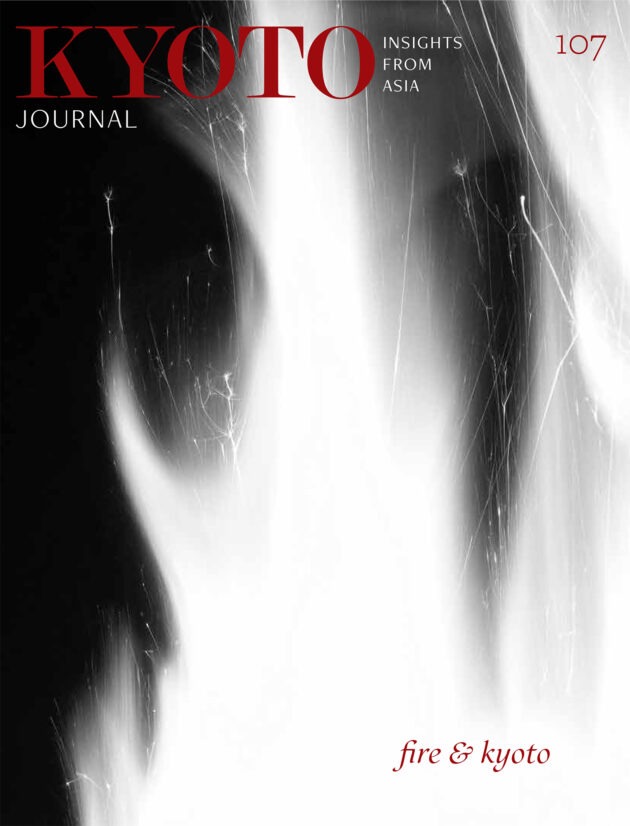[M]y world of Zen is a world of poetry. My world of poetry is a universe of sentient beings, like snowflakes each unique and perfect, singing to celebrate the phenomena of this here, this now, the reality and dream of who and what, alive in the senses, the pulse, the breath, in what we do, in how we say, a transient, ever-changing flow, a stream. It is joyful, but not excluding grief. It is loving, but not denying hatred and anger. It is the inclusive moment and as such it transforms illusion, dream and stupidity, transcending death in its living and life in the dying.
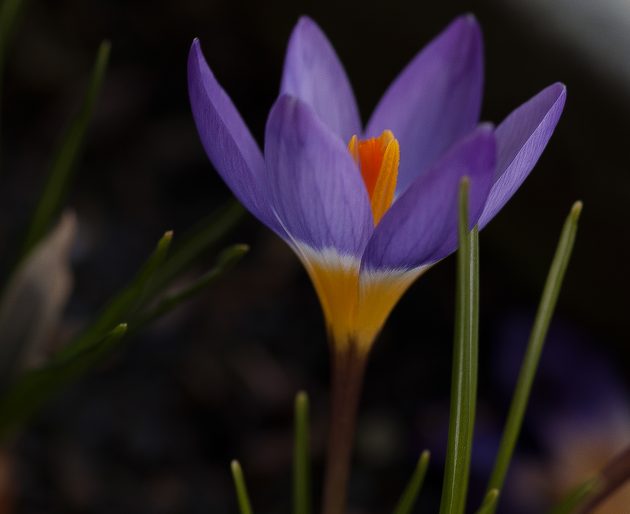
In this world, expressions are not explanations, nor doctrines or teachings. They manifest, or I can say, embody, or invoke (call into being as voiced) an experience, making no claims, bringing no requirements. Words sound in the listening silence like the footfalls of a pilgrim in moonlight.
In this perspective, the historical Buddha or any historical ancestor is not the issue. History is another perspective, also significant, but no icon or heraldic device of lineage stands across the way of the pilgrim, who bows and moves on. Immediacy of the moment is sacred space. Immediate awareness is ritual activity.
Buddha is in this a universal energy of your human story, my story, our story, an evocation of the timelessly human, realized and embodied variously in every life and every culture and evolving in a variety of forms and expressions. We might embrace and grow with the differences. No one is right where no one is wrong. We journey together if we are to journey at all in this threatened world.
In our sitting there may emerge an energy and a presence beyond anything personal, beyond any individual’s insights, yet, silent and still, we experience intimacy; an appreciation of each person’s unique energy emerges from the deepest ancient sources of human imagination, the source from which all imagery and language, all volition and decision flow. Words may illuminate or cloud this essential intimacy as it flows into our living, working, and being together. Words may be luminous as the moon and deadly as a lightning strike; as nourishing as light or food; as timely as a loving touch or glance.
The experience of words transforms perception. We see the world we sing.
Master Issa, who had such a troubled life, wrote a poem:
Pity the poor fly
He wrings his hands
He wrings his feet
…And, when his long awaited little daughter died, he wrote in middle age:
The world of dew
Is
The world of dew –
And yet…
And yet…
And yet…
He does not pretend it doesn’t hurt or that he has salvational answers. He is the hurt. That’s natural compassion. Somewhat patronized by some who favor poets that take the robe or teach, he stands high among my Buddha ancestors. The hurt doesn’t seem to be getting better, does it, for all the salvational teachings? Today’s headlines are all shootings, bombs, terror, abuse and starvation, and the devastation of the lives of countless numbers of little children, right now.
In 1973 I went looking for a Buddha to come to my, and even maybe our, rescue. I wanted to actually meet the guy, hear his voice. I was this much clear, that the great religions that appealed to me arose from the intimate personal experience of a human being who had the gift to awaken the possibility of such an experience in others. It was a fabulous adventure and enrichment to study, read and translate the earliest (Pali) accounts of his teaching life.
Of course, I didn’t find him. I found me looking for him. And many forms of me, or possibilities of us, in everything I learned about his students and disciples, my mythical brothers — the lean ascetic Kashyapa, and the ebullient, egregious Ananda, whom the Buddha kept cutting down to size (but his thirst to be the one who really saw something kept burgeoning green and naïve). Over 39 years, I was privileged to meet many living teachers in many Buddhist disciplines. And still, what I found in the seeking was my seeking.
When I came to see that my hands were empty of what I had so dearly paid to seek, I was devastated — until I found that they are my hands, and alive, and realized I could not reach out to hold yours, my brothers and sisters, if they were heavy with dreams and hearsay teachings and relics and rules.
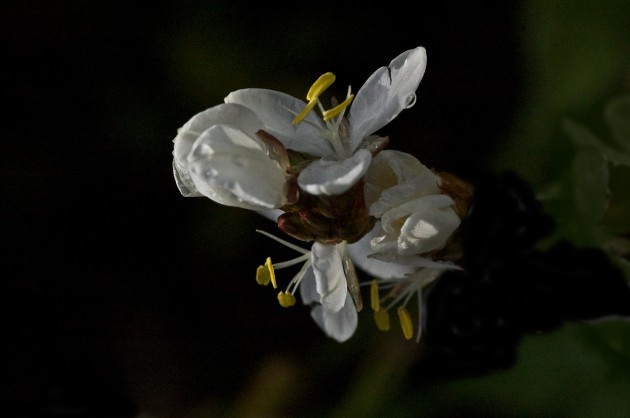
One of the things about being me then was waking at night (or meditating all night) with my demons howling. This body-mind seems to be like a channel, vehicle or form (as in the blacksmith’s forge) for universal human agonies to flow through. As much as I constrain the channel in order to conform to a teaching I have by hearsay or example, the bodymind channel closes that much; the territory is screened by the map. The energies thus distorted and denied, however, continue to be powerful and find their ways and means beyond my conscious awareness to affect my behavior, speech and thought. In this way, I suspect, we get our abusive teachers of compassion, judgmental teachers of equanimity, and teachers of the way of poverty supposedly lived by their Christ or Buddha, who seek power and wealth.
The body-mind is a channel for all streams to flow through. If I do not allow myself to suffer fully, how can I be fully open in my joy? If I will not connect with my suffering, how will I connect with a friend, colleague, client or loved one on the intimate ground of their suffering?
In the Indian myth-making language of the sutras, during the ‘seven days and nights’ before he really woke up, that’s what the Buddha went through — becoming one with the demons of lust, rage, and ignorance/stupidity/delusion. Then he woke up.
He is pictured touching his hand to the earth. It is variously interpreted. In my heart vision, my Buddha was glad to be grounded — his waking up is humble, for the Latin humus means earth. His breath is alive. His hands are empty. He is naked, as born. It is natural. It is immediate.
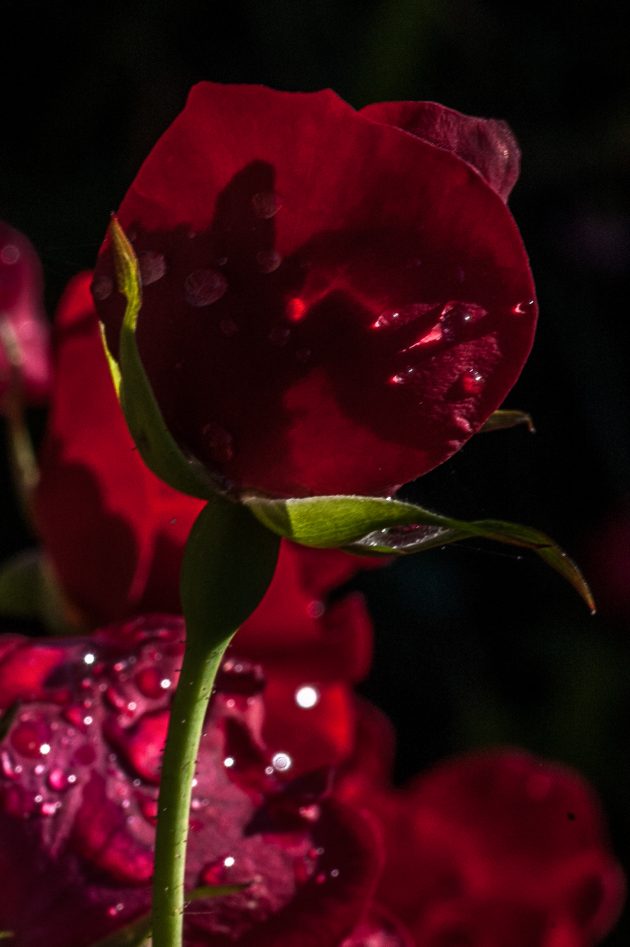
Back in 2004, I began to write poems for a beloved friend about this journey. The pilgrim journey continues.
Threads
Insects and spider webs in the dew
Breath of a wind
A fallen skull in the dirt
A vase shattered in the rubble
Under a slanting roof beam
a broken doll a dish rag
This city stinks of anger and greed
I look in the dark to find
stone and flower and creature:
here are bright webs we see
in the silence of dawn
threads of the glistening web we weave
that have no other being
but in the singing the dancing the music
I saw a mother weeping by a ruin of bricks
by a scatter of burnt school uniforms
a wall sprayed with blood dried brown and burnt metal circles
Her child lay in her arms
In each of us is a knowledge
that something is expected of us
We have no other
We must enter the dark
for we have laid the earth waste
and we have laid the people waste–
is there an entry to the day other than through the night?
Let us remember old ways to say thanks
each weaving self as other
weaving the other as self
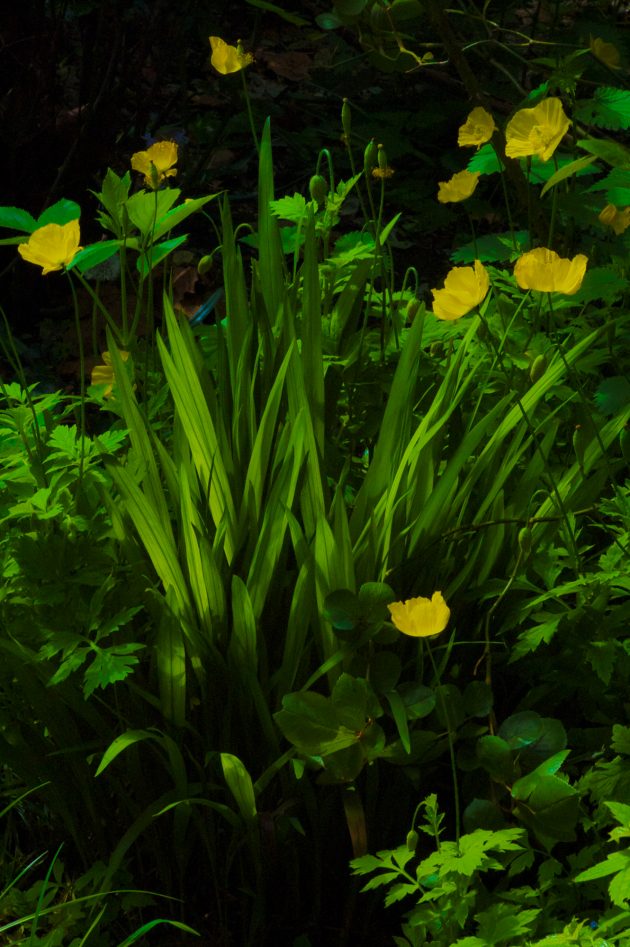
Companions
Rocks & waterfalls, fountains, deserts, forests,
farms & prairies, icebergs, snowflake, dewdrop,
a petal curling in the frost,
a molten lava flow,
an albatross, an eagle, a sparrow, a whale,
a white root searching the secrets of your dark travail,
chasm, abyss, glacier & peak, layer below layer of canyon silence,
a scatter of human remains buried by a long-vanished river
and all the vision pride & hope of these ancient artifacts,
snow falling in January lamplight,
a bomb exploding on a starry night,
a grain of rice, a refugee,
a child nursing a child beside a stricken mother,
an obese lady in a flowery hat starved for sugar and breath
and a pine cask with brass accouterments
among the abandoned computers & all that trash
Teach me, Beloved, the art of the last breath,
breathed in with dispassionate joy
breathed out with dispassionate love
I have my mother’s trembling hand
I am fashioned of your minerals your streams your fires:
I am a thing of clay
a thing of joy
a thing of breath
I have come far to find you
by quinquireme & galleon, barque & barge, coracle, raft and resplendent liners
scattering behind me pagodas, stupas, temples, burial mounds, huts, hovels and gorgeous palaces
I have journeyed in chariot and carriage, boots and bicycles, litters and perambulators
I have searched & discovered so many traces of you
in quartz & diamond, ruby & topaz, aquamarine, opal and emerald
in heart’s ease, mullein, baby’s breath, foxtail, guelder, snapdragon, tansy, snowberry, loosestrife,
in a drop of dew, a glance, a breath, a whispered word of love in passing, a hand trembling in mine,
by candlelight, incense, robe and bowl,
in prayer & contemplation, scripture, scroll, clay tablet, and heart-felt chanting
I have drunk deep in cup and chalice, well, stream, spring and fountain,
and felt your presence in a smile, a gulp, a sigh, a cry, a bow, a shudder, a sneeze,
in womb & mouth, anus, urethra, vein, artery, neuron, cell,
and I am come to this –
seeing the snow settle, perfectly crystalline
Now my boots are cold
The cat and I touch noses
her tiny fragile footsteps echo
nearer than ever
So breathe me into the world though haunted
where ghosts or demons patrol the darkness,
darkness of the frail body
urgencies of bowel & bladder
stored regrets & agonies of choice & damaging decisions
aching in the shoulders & groin
fantasies of intimacy & surrender,
memories of the beloved, her presence and her fragrance
moments of touching ecstasy
and guiding stars, the infinite array of Buddhas & bodhisattvas
prophets, pillars, poets, shamans, and gurus,
watching the fallen bodies fall in the gas again & again
the child dying on her empty breasts
–age after age her story that is no story,
and the visions of sacred awakening
angels & archangels, the absolute light invisible everywhere,
gentle dew & drop of rain
a falling petal, a visiting spider
by oak & beech, birch & pine
a rose bud born of millennia unfolding on a summer day
Each breath is a singular grace
in all its imperfections
I bless the innocents of sorrow
in this unbidden rain
as the snow dissolves around me
Perhaps you dreamed me, dream that I am
and if I return, I may remember:
or perhaps if I remember, I shall return…
but let each breath be now my first, each first as if the last,
death after death, birth after birth
until I surrender all I have seen & heard, touched & breathed
as the snow melts
where I scatter seeds
My winged companions watch from the trees, alert and hungry

Author
George Jisho Robertson
Author's Bio
George Jisho Robertson is 79 years old, a father and grandfather, a poet and photographer. In 1989 he retired from his work as an English teacher and headmaster and became a Zen priest. In 2007 he retired from that life to devote himself to developing his life-long practice of poetry and the study of many religions and cultures, currently focusing on creating an informal community through Facebook, which locates the creative imagination as the heart and eye of spirituality.
Credits

